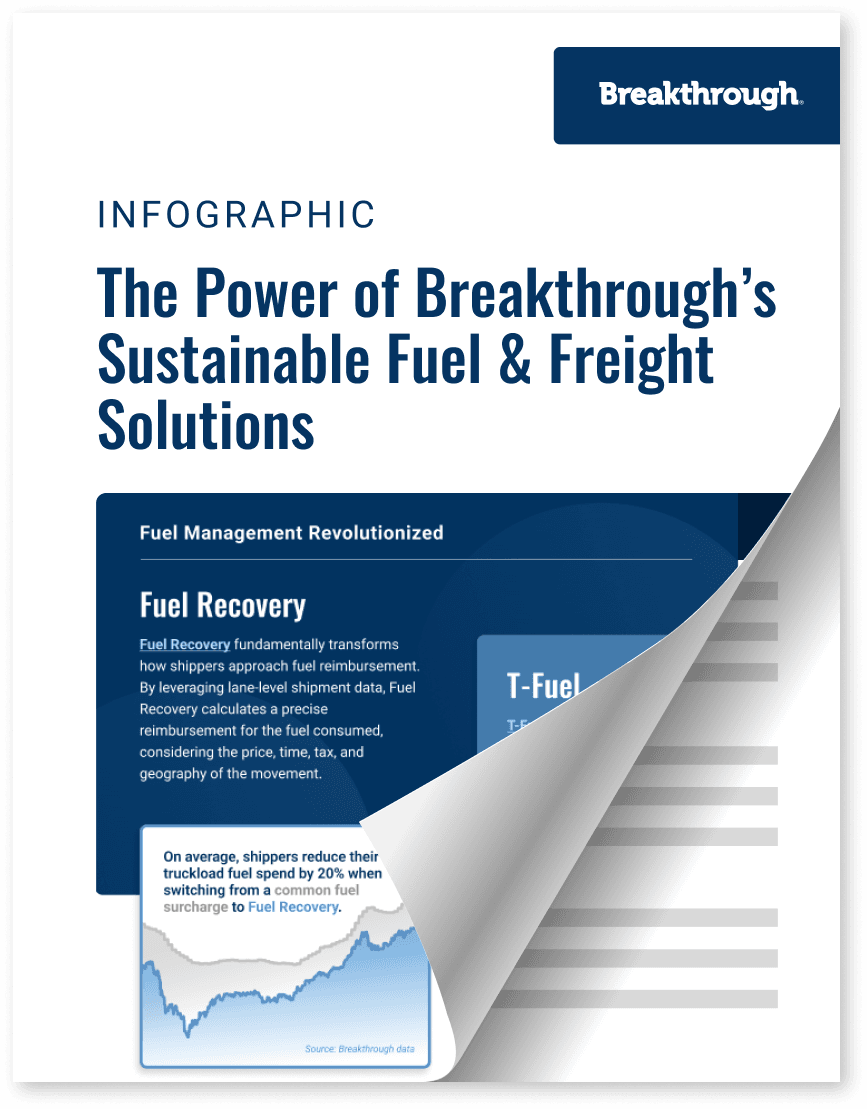The Power of Breakthrough's Sustainable Fuel and Freight Solutions

Freight
3 min read
July 17, 2024
Market Events
4 min read
July 16, 2024
Market Events
3 min read
July 8, 2024

5 min read
May 7, 2019

Share:
The last time the international maritime industry experienced broad changes to its conventional fuel sulfur limits was 2015, when emission control areas were formed in Northwest Europe, the US, and US Caribbean. Unrelatedly, the US crude oil export ban was lifted later that same year. The international maritime industry will face its next round of sulfur emission regulations changes in 2020, and this time US government officials hope to leverage the US’ growing supply of low-sulfur crude oil. According to a letter to President Trump written last week, the regulatory changes could offer a competitive advantage as the US seeks to benefit from being the world’s leading producer of low-sulfur fuels.
On Monday, April 29th, thirteen US Senators penned a letter to President Trump supporting the International Maritime Organization’s (IMO) 2020 sulfur regulations set to take effect on January 1, 2020. The delivery of the letter intentionally preceded the Marine Environment Protection Committee’s (MEPC) 74th meeting which will likely serve as the last opportunity to postpone the implementation of the new standards, even though the IMO insists the opportunity to adjust its sulfur cap has passed. Nevertheless, the group of senators wished to ensure the US reaps the benefits of increasing production and over a decade of infrastructure and technology investment across its oil and refining industries.
The letter states, “Implementing and enforcing these standards (IMO 2020) will fuel America’s growing energy dominance and could place the U.S. at a distinct advantage to our global competitors.” The letter comes at a time when growing US energy abundance is playing a critical role in geopolitics. US economic sanctions on Iran and Venezuela, as well as trade negotiations with countries such as China, Canada, Mexico, and the European Union are supported by growing US dominance across energy sources on the global market.
Furthermore, the Iranian and Venezuelan economic sanctions will be assisted by the coming maritime sulfur cap, because these nations’ primary crude oil contains high sulfur levels and require complex refining infrastructure to process and minimize high-sulfur byproducts. The characteristics of respective international crude oils will then likely see US light-sweet crude oil traded at a premium, while Iranian and Venezuelan heavy-sour crude oil will be traded at a steeper discount, inflicting additional economic pain. Coincidentally, crude oil above 0.5% sulfur by mass is considered high-sulfur crude oil, the same percentage of sulfur by mass that maritime vessels must limit their fuel to come 2020.

The chart above shows the significant difference between sulfur content and density (API gravity) between US crude oil and heavier crudes like Iranian and Venezuelan crude oil. Low-sulfur crude oil (below 0.5% sulfur – highlighted in light blue) will benefit from the IMO’s sulfur emissions regulation. US sweet crudes and the Iranian and Venezuelan sour crudes are called out in the chart.
The senators also provided guidance for price impacts that may come from the fuel market transition, citing both the Energy Information Administration’s (EIA) Short-Term Energy Outlook (STEO) and recent statements by the International Energy Agency (IEA). While gasoline prices were a primary focus, the letter mentioned the EIA’s forecast of slightly higher diesel prices in 2020. Additionally, the senators used statements by Fatih Birol, the IEA’s Executive Director, in recent testimony in front of the Senate Energy Committee, to dismiss the notion of price spikes.
The IMO’s emissions commitments have factored into Breakthrough’s research, commentary, and forecasts for years, particularly the IMO 2020 sulfur cap. Our current diesel market forecasts show upward price pressure on diesel through the fuel market transition – particularly from Q4 2019 into Q2 2020 because of greater demand for low-sulfur fuel – but are far from representing a dire market experiencing substantive price spikes. The letter issued from the US senators will not change our current forecast, as we have further projected the IMO’s regulatory timeline will be maintained and a high level of compliance will follow.
Of course, the inland fuel price impacts of the sulfur cap will be significantly less than those experienced by beneficial cargo owners (BCOs) and their carriers on seaborne trade. For more details on these impacts and how to navigate the changing marine fuel landscape, please attend one of our upcoming Breakthrough Marine Fuel Management 101 webcasts.
The focus of the international maritime industry remains largely fixed on sulfur, but the International Maritime Organization (IMO) continues to make progress towards further limiting transport emissions.
The Marine Environment Protection Committee (MEPC), a sub-committee of the IMO, will gather in London from May 13-17 to discuss next steps in implementing the IMO 2020 sulfur regulations. This year’s meeting will see IMO member states deliberate short-term measures to achieve the ambitious emissions reduction goals first adopted in April 2018—one of which is to reduce total annual greenhouse gas levels associated with shipping by at least 50 percent by 2050 compared to 2008 levels. Several of the short-term proposals discuss changes to vessel speed and operational efficiency standards, and if adopted will likely have implications for fuel costs and supply chain operations.
Breakthrough’s Applied Knowledge team will continue to keep clients informed of fuel market developments concerning the IMO 2020 sulfur regulations. Please contact us to learn more about our forecast and outlook across transportation energy markets.

3 min read
July 17, 2024
Maximize transportation efficiency with cohesive fuel and freight strategies. Discover the power of enhanced visibility, cost-effectiveness, and sustainability.
Read more
4 min read
July 16, 2024
Discover how the recent elections in Mexico and the EU are expected to influence energy policies, fuel prices, and dynamics in the transportation sector.
Read more
3 min read
July 8, 2024
Understand the state-specific changes in diesel tax rates and explore strategic solutions for shippers to accurately calculate fuel reimbursements to carriers.
Read more